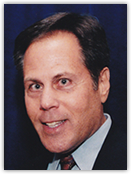Democrats, including the LGBTQ community, must stick together to win
March 21, 2023 12:00 am
When I was growing up, people like me, who were disabled, were usually met with scorn, pity and exclusion.
On March 4, Judith (Judy) Heumann, a founder of the disability rights movement, died at 75 in Washington, D.C.
For decades, Heumann, who contracted polio when she was 18 months old, was a leader of a civil rights movement that changed the lives of millions of folks like me.
Judy (so many of us, whether we knew or not, connected with her on a first-name basis), was known as the “mother” of the disability rights movement. She was the Harvey Milk of our struggle.
You might think: why should LGBTQ people care about the passing of a disability rights leader?
Here’s why: Nearly, 20 percent of people in this country have a disability, according to the U.S. Census Bureau. This includes LGBTQ+ people. An estimated three to five million people are queer and disabled.
Studies, including a study by the Map Advancement Project, reveal that queer people are more likely than non-queer people to become disabled. We face the double-whammy of anti-queer and disability-based discrimination. The MAP study reported that of the more than 26,000 transgender people surveyed, 39 percent reported having a disability.
If you’re queer and have a disability (blindness, epilepsy, cerebral palsy, psychiatric disorder, etc.), you’ve likely run up against employers who don’t want to hire you or restaurants who don’t care to serve you. If you’re a queer parent of a disabled child, you’ve probably had to fight to get your kid the education they need.
These battles are hard. But, thanks to Heumann and the movement she led, there are ways — from the Americans with Disabilities Act to working the media — to fight this injustice.
Heumann, who at 29 led a month-long protest that was the Stonewall of the disability rights movement, and in her 70s was the star of the fab, Oscar-nominated documentary “Crip Camp,” was a powerhouse of energy, discipline, hard work and humor. She was a quintessential bad ass who worked for justice 24/7, and kicked your butt if you didn’t.“Kathi, get your self together!” commanded the voice over the phone, “or you won’t get anything done.”
It was 1987, and I was writing my first news story. I was interviewing Heumann about an historic protest that she’d led a decade earlier. It was the 10th anniversary of what is believed to be the longest non-violent sit-in a federal building.
In April 1977, more than 100 disabled people took over the (then) Health, Education and Welfare building in San Francisco. President Richard Nixon had signed the Rehabilitation Act into law in 1973. But, regulations, known as “504,” a section of the Act that prohibited discrimination against disabled people by institutions (schools, hospitals, etc.) receiving federal funding, hadn’t been signed. After protesting in the San Francisco building for a month and in Washington, D.C. (including at then President Jimmy Carter’s church), the “504″ regulations were signed.
Heumann, who was an official in the Clinton administration and a special adviser in the Obama State Department, was tough, kind, and proud of herself and the movement that she founded.
For Heumann, who is survived by her husband and brothers, disability was a normal part of life, not a tragedy.
“I never wished I didn’t have a disability,” Heumann wrote in her memoirs “Being Heumann: An Unrepentant Memoir of a Disability Rights Activist.”
When Heumann was a child, disabled children were often institutionalized. Like being queer, being disabled wasn’t considered to be normal then.
Doctors advised Heumann’s parents to send Judy to an institution when she was a child. But her parents, who were Jewish and had fled Nazi Germany, refused. This experience turned her mother and father against institutionalizing her, Heumann wrote in her memoir.
“If I’d been born just 10 years earlier and become disabled in Germany, it is almost certain the German doctor would also have advised that I be institutionalized,” Heumann wrote, “The difference is that instead of growing up being fed by nurses in a small room with white walls and a roommate, I would have been taken to a special clinic, and at that special clinic, I would have been killed.”
Just as it is if you’re queer, if you’re disabled, if you want to respect yourself, you need to be out and proud.
Judy more than anyone I’ve ever known, helped so many of us with disabilities to be out and proud. She taught us that being disabled isn’t something to be ashamed of. That it’s an important aspect of who we are.
Her disability, Judy often said, is, “Like the color of my eyes or the color of my hair, it is a part of who I am.”
I knew Judy only from interviewing her over the years and being on an episode of her podcast “The Heumann Perspective.” But Judy, whether you’d known for decades or just a few months, made you feel like you were a friend. She’d advise you, cheer you on and challenge you over the phone, in texts and on Zoom.
She almost got me, a non-make-up wearing lesbian, to wear lipstick (so I wouldn’t look like a ghost on her podcast). Earlier this winter, Judy wondered why I didn’t put my disability on my resume. Being nervous could be good, she said, when I was scared of reading at a poetry festival.
“If you don’t respect yourself and if you don’t demand what you believe in for yourself, you’re not going to get it,” Judy said.
Thank you, Judy for teaching us to respect ourselves and to demand our rights! R.I.P., Judy!
Kathi Wolfe, a writer and a poet, is a regular contributor to the Blade.
Categorised in: News, Washington Blade
